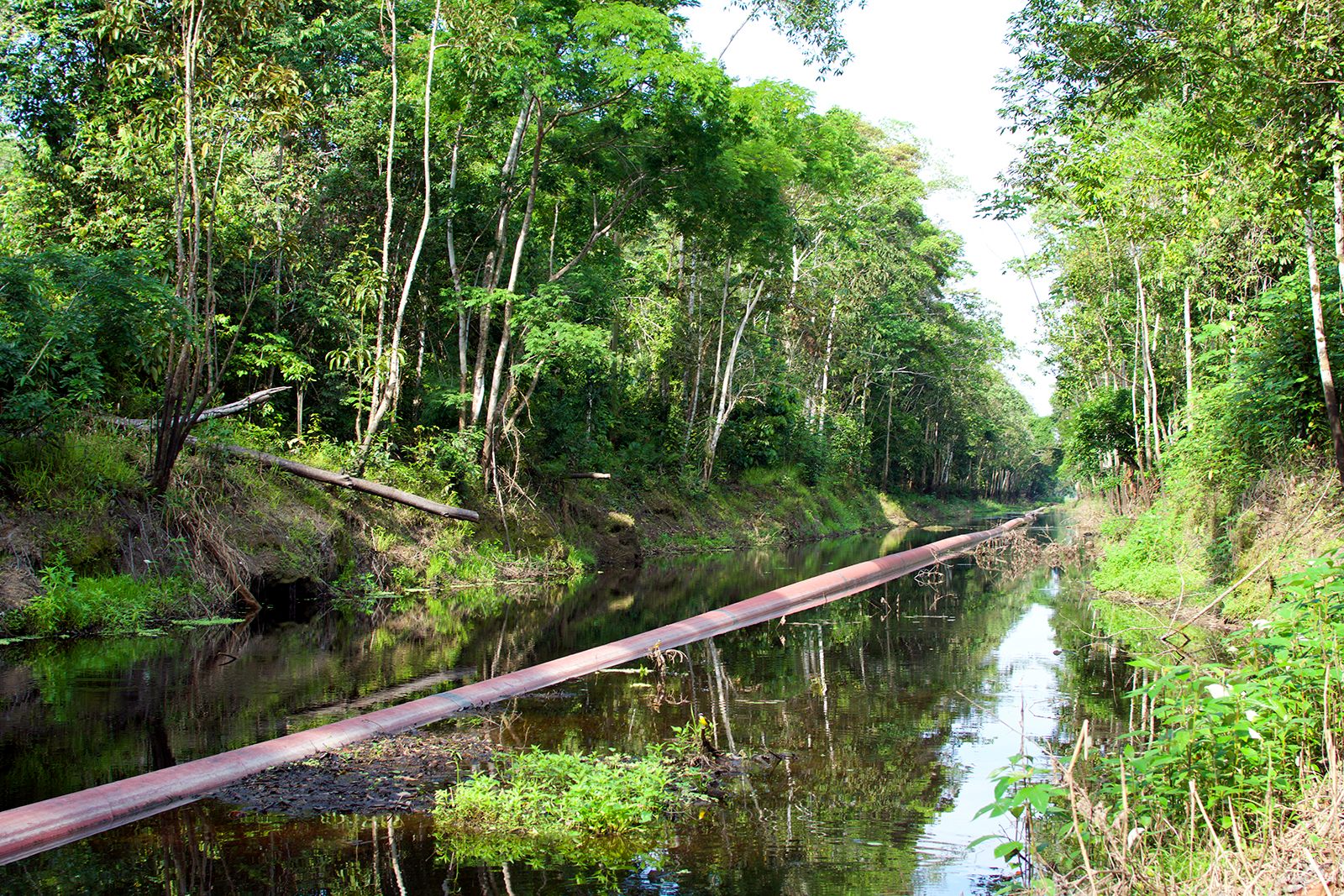By
Indigenous peoples affected by oil activity in the northern Peruvian Amazon have yet again raised their voices and demands for justice in another important hearing with the Inter-American Commission on Human Rights (IACHR), this time focused on the case of the right to water in the indigenous communities of Cuninico and Vista Alegre.
These two communities, representative of the grave crisis faced by many other communities from river basins affected by over 40 years of oil exploitation and the constant oil spills from Peru’s rusty and leaking North Peruvian pipeline, continue to have their access to safe drinking water systematically violated.
“For how many more years are we going to continue drinking this contaminated water?”, asked indigenous leader Watson Trujillo Acosta from Cuninico, a small community of the Kukama-Kukamiria people struck by a 2 500 barrel-oil spill on their territory in 2014 owing to a rupture in the North Peruvian pipeline operated by state company Petroperu S.A., and has been struggling for justice ever since, pleading for access to clean drinking water and basic medical attention. Sitting alongside him was indigenous Kichwa leader Llerson Fachin Tuituy from Vista Alegre in the Tigre river, a community which now counts three cemeteries due to the high levels of child mortality in recent decades. Since the Eighties, Vista Alegre has been heavily contaminated due to the dumping of toxic production waters into rivers and spills by companies such as Occidental Petroleum Corp (OXY), Pluspetrol S.A. and Frontera Energy Corp. operating in Peru’s most prolific oil Block 192. The leaders pleaded the commission to “exhort to the Peruvian state to stop killing indigenous peoples like this”, with demands including the provision of water fit for human consumption, health, education, remediation, and compensation for the impacts of contamination.
“For how many more years are we going to continue drinking this contaminated water?”
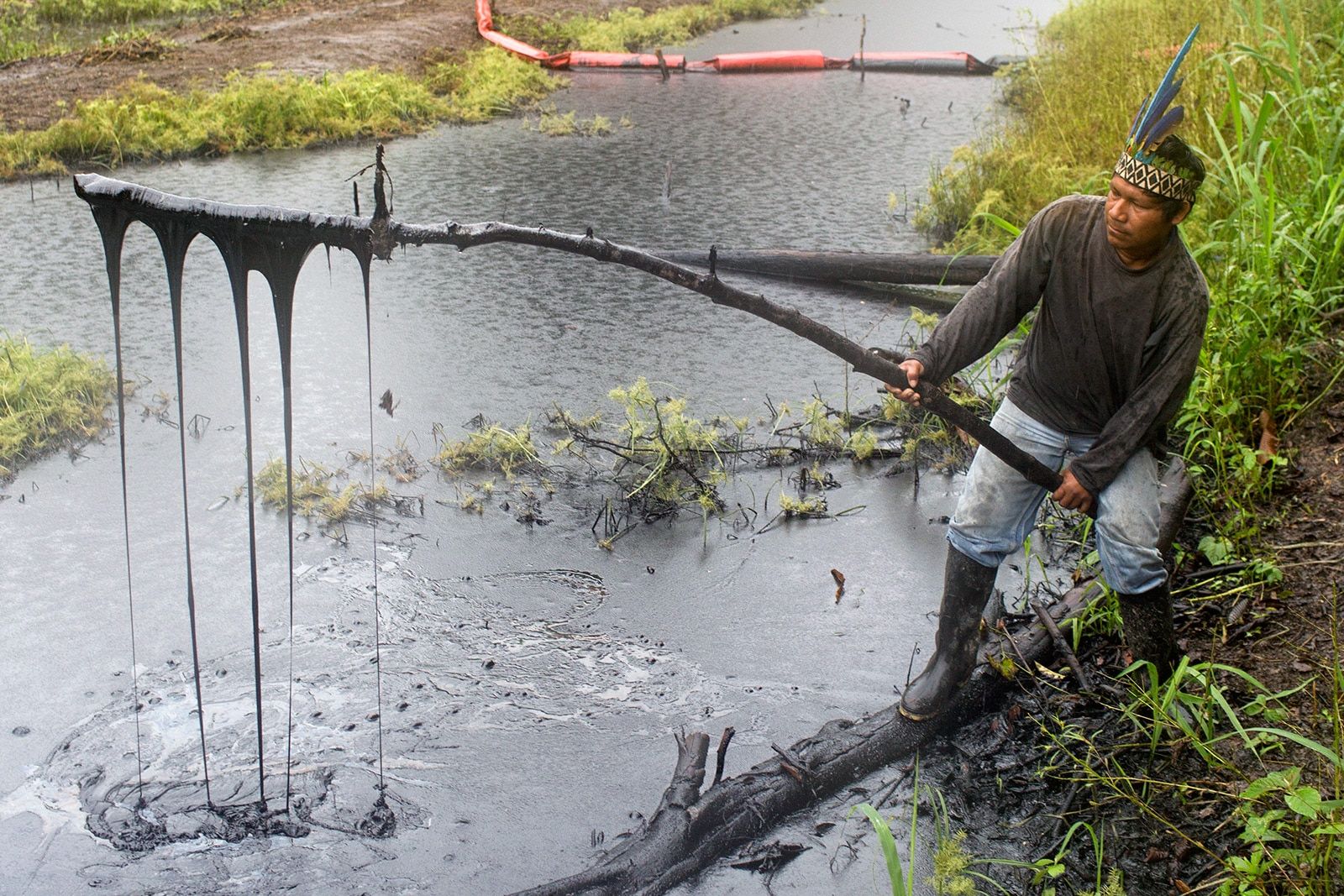
The Right To Clean Water
The Commission indicated that the Peruvian State has not adopted sufficient measures of prevention and remediation in the face of these disasters. “We make our just claim to the right to water, the right to health and the right to food. Rights that are being affected precisely by this situation of oil spills”, said Joel Hernandez, Rapporteur for Peru for IACHR. “It seems that in the last 40 years it is a recurrent phenomenon along the North Peruvian pipeline, no effective measures are adopted.” In the past two years alone, spills from the North Peruvian pipeline have increased, with just 40 spills being documented in Peru’s most prolific oil block 192 and 24 spills along the Maranon river. Built in the Seventies, the North Peruvian pipeline’s four-plus decades in the acid waters of the Amazon river basin have left the infrastructure in a deteriorated and alarming state.
“We make our just claim to the right to water, the right to health and the right to food. Rights that are being affected precisely by this situation of oil spills”
As part of the evidence handed to the Commission by a delegation consisting of the indigenous leaders, Peru’s prestigious Pontifica Catholic University (PUCP) and the Vicariate of Iquitos, was included the investigation entitled “The human right to water in the context of socio-environmental conflicts in the basins of the Tigre and Marañón rivers Loreto, Peru” led by Lima’s prestigious PUCP university and facilitated by the Chaikuni Institute, as well as the Peruvian Congress’ investigation on the recent oil spills from the North Peruvian pipeline. Photographic evidence of oil spills curated by The Chaikuni Institute was also presented to the Commission’s panel, who called the photographs “very impactful […] The photographs speak for themselves”.
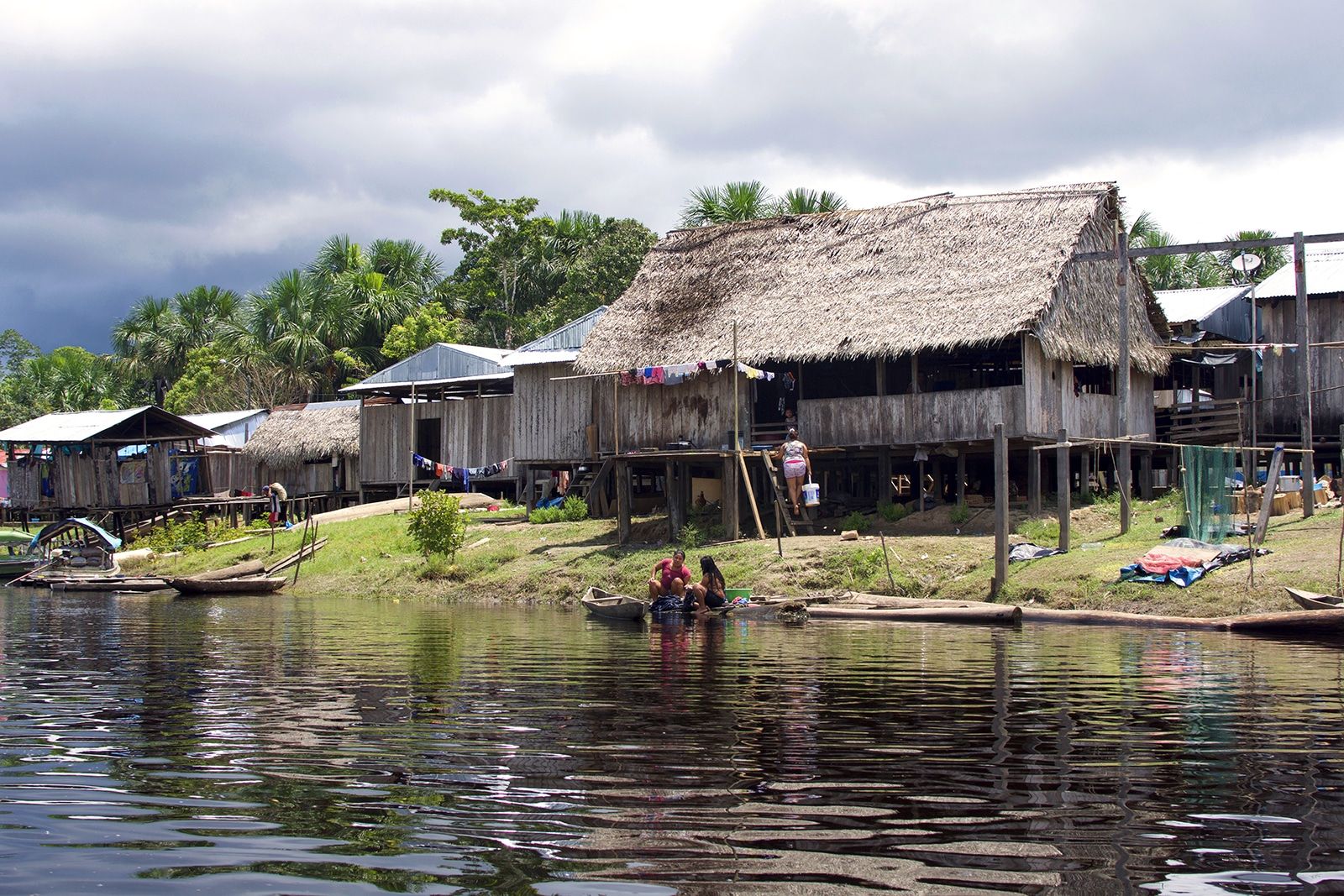
“Indigenous peoples teach us that water is more than a right – water is a living being, the world needs it for its subsistence”
Rivers are a vital source of life for Amazonian indigenous peoples, providing not only communities’ main water source and livelihood, but also carrying with it much cultural and spiritual significance as part of indigenous people’s cosmovision. “The water of the river is everything to us: from there we take our fish, it is our family, our life, part of our cosmovision, without it we cannot exist”, said Llerson. During the hearing, IACHR’s Soledad García Muñoz, Special Rapporteur on Economic, Social, Cultural and Environmental Rights stated that “we must emphasise the importance of the realization of respect for water, for our Mother Earth (Pachamama), our societies and indigenous peoples who teach us that water is more than a right – water is a living being, the world needs it for its subsistence”.
Ongoing Defence Processes But Still No Solutions
While indigenous peoples affected by oil activity have organized many protests and sustained countless dialogues with the state, which in turn succeeded in important agreements being signed to resolve the problematic, there is still no solution in sight. “The state has only dedicated itself to delaying agreements through more dialogues and meetings, until today there is no concrete result with regards to what the communities from different river basins demand. We hope the Commission requires the Peruvian state to comply with its obligations” tells us Llerson.
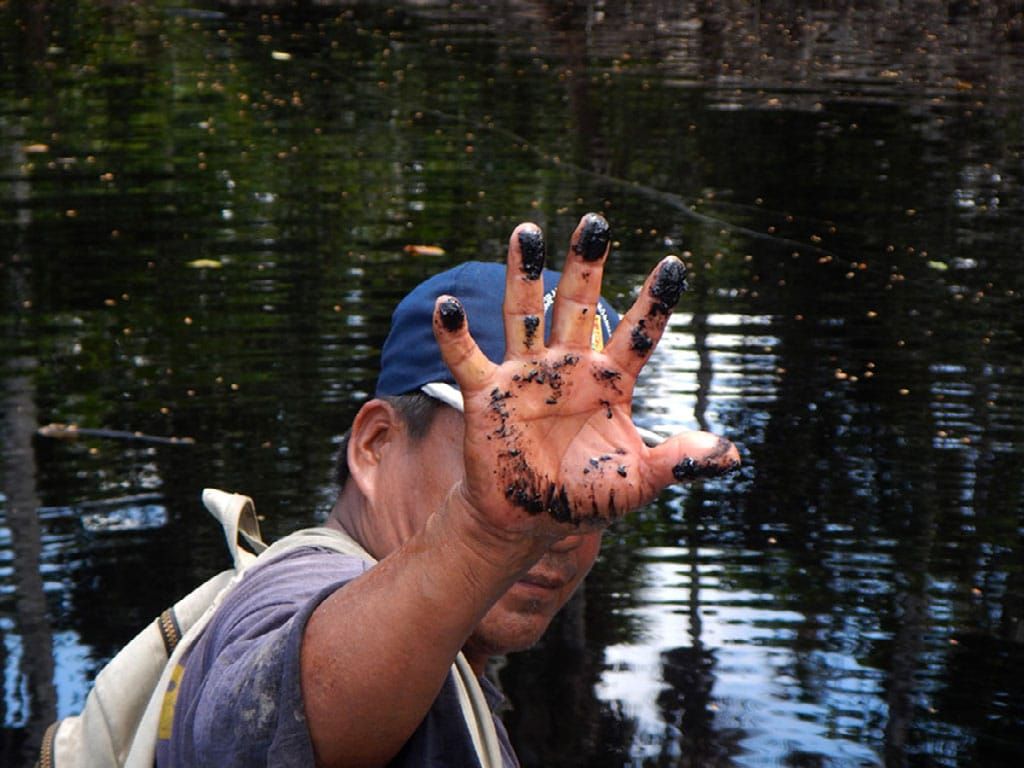
In the case of Cuninico, this hearing with the Inter-American Commission on Human Rights was the second time the community presented its case. Back in a 2016 hearing entitled “The situation of abandonment of native communities affected by oil spills” held within the 158th session of the IACHR, community members had already denounced the lack of attention received from the state for clean water and medical attention, and the lack of adequate remediation by oil company Petroperu, which still denies compensation to the community and continues to benefit from impunity despite the irreparable damage it has caused to indigenous peoples and the Amazonian ecosystem in Loreto.
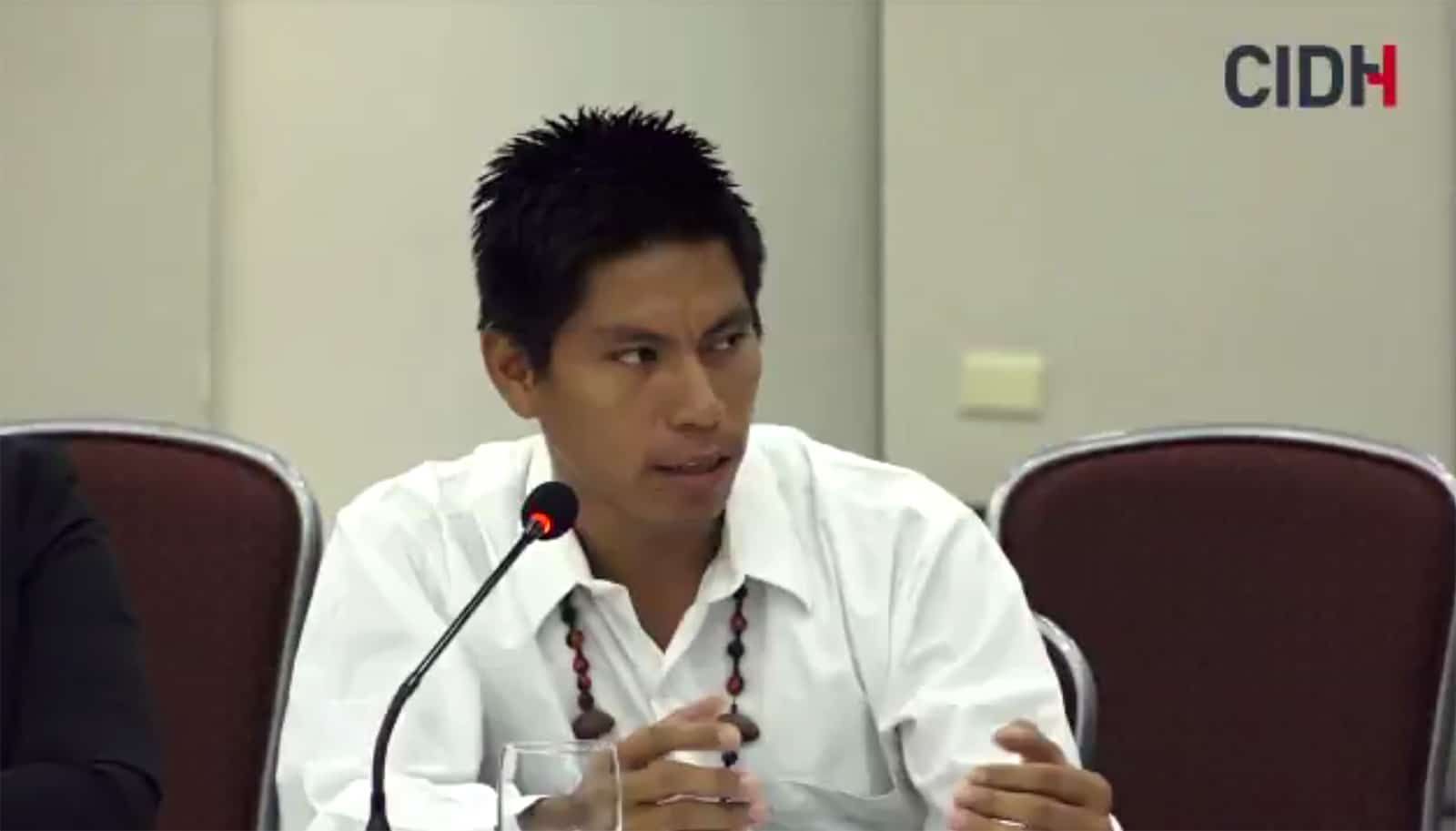
Cuninico also has a legal case at the national level, in which the local court of Nauta in Loreto issued a historic resolution in March 2018 urging Peru’s Ministry of Health and the Regional Government of Loreto to comply with the “precautionary measures” which it had issued in 2017 and designed to help protect the rights of individuals or communities at risk. “We still have no water and no basic sanitation”, says Watson. “In January 2017, Peru’s Ministry of Health declared a health and sanitary emergency in our district, alerting people to not use the river water because it is not fit for human to not not to use the water. The oil spill happened back in 2014!”.
In the case of Vista Alegre, this is the first time the community has brought its case to IACHR. Indigenous leader Llerson Fachin Tuituy emphasized that despite an environmental and health emergency being declared by the state in the Tigre river basin in 2015 following an indigenous uprising, the state installed water plants in communities as a means to treat the water from high levels of contamination from crude oil. But results from two studies by Peru’s health authorities assessing the quality of the water processed by the plant have been hidden from indigenous peoples, testified Llerson. No toxicology studies to investigate levels of heavy metals has ever been carried out in the affected communities either, said Llerson. “The contamination of the water is permanent”, tells us Llerson, “The heavy metals continue to flow down and our children continue to bathe in this water with oil.”
“After the hearing, we have much hope that we can be heard. In Peru, many years have passed, and to this day we still do not have clean drinking water.”
The Commission is due to schedule a visit to the Tigre and Maranon river basins soon to gather evidence in order to produce a report and issue exhortations. “After the hearing, we have much hope that we will be heard” told us Llerson as he was about to travel back to his community. “Perhaps, through other higher-level institutions, we can get the attention we need and our problems can be solved more quickly. Here in Peru, many years have passed, we are not heard, and to this day we still do not have clean drinking water. We hope this Commission will help us to secure the basic things we need to survive – clean water”.
